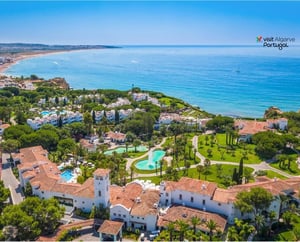IMI Property Tax in Portugal: 10 Questions answered by All Finance Matters
Book Top Experiences and Tours in Algarve:
If youʻre booking your trip to Algarve last minute, we have you covered. Below are some of the top tours and experiences!- From Albufeira: Half-Day Winery Tour and Silves
- Algarve: Landscapes, Pottery, and Winery Tour
- Portimão: Pirate Ship Cave Cruise
- Loulé: TechSalt’s Rock-Salt Mine Tour
- Vilamoura: Benagil Cave Boat Tour with Entry&Dolphin search
IMI, Imposto Municipal sobre Imóveis (Municipal Property Tax) is levied on the taxable value of properties in Portugal. The tax reverts to the council/ municipality where the property is located.
In the article below, Ricardo Chaves from All Finance Matters answers questions you may have about IMI in Portugal. All Finance Matters is one of the leading accountancy firms in the Algarve, providing professional, honest, practical and expert tax and accounting services to expats and residents in the Algarve.
10 questions about IMI
This article was originally published by All Finance Matters
What is the IMI?
IMI (Imposto Municipal sobre Imóveis – Municipal Property Tax) is a tax on the taxable value of immovable property in Portugal. This tax came into force in 2003, replacing the Council Tax, and reverts to the respective municipalities.
Who pays IMI?
The taxpayer is the property owner as of 31st December of the previous year. This means that if you bought your property at the end of 2019, you will pay the IMI for the full year. Likewise, if you sold your property at the beginning of 2020, you will still need to pay the IMI this year, as it’s always related to the previous year.
How to calculate the IMI?
IMI is calculated based on the Tax Asset Value (VPT) attributed to the property to which is applied a rate set annually by the municipality (VPT x IMI rate). The way the VPT is calculated varies. The VPT is calculated on the basis of various factors such as the construction value per square meter gross floor area, location, quality, comfort and property age, updated every three years.
What is the taxable value?
The taxable value of buildings is its value determined by assessment according to the rules of the IMI Code. This value is registered in the land register.
Who determines the IMI rates?
The municipalities decide each year, which tax to apply in their council. This needs to be between 0.3 and 0.5% for buildings and 0.8% for plots (rustic property). Properties with tax domicile in “offshore” are taxed at 7.5%, regardless of the type of property.
How long is the payment of IMI?
IMI is paid annually through a single billing document in April, if the tax is up to 250 euros. If the value is between 250 and 500 euros, you can pay in two installments, in April and November. If the amount exceeds 500 euros, you can pay in three times (April, July and November).
What are the consequences of not paying the IMI on time?
If you do not pay within the period specified in the collection document, you will pay interest on arrears. If the non-payment persists your property can be seized.
Where can the IMI be paid?
IMI can be paid at the Tax Office, Post Office, in any ATM machine or through internet banking.
Who is entitled to exemption?
Are exempt from property tax, the owners whose annual income on IRS in the previous year does not exceed 15 295 euros, provided that the book value of the property does not exceed 66,500 euros. The exemption is recognized by the head of the local tax office for a period of three years.
I am paying too much IMI, can I reduce my IMI bill?
It may be possible to revaluate your property and reduce your tax liability. We have successfully submitted requests to the local tax departments to reduce the tax values of our clients’ properties, thereby saving on the IMI property tax bills. However please note that any reassessment only takes effect in the following year.
If you wish to find out whether your property may qualify for a tax discount, please feel free to contact us!
Visit All Finance Matters or contact +351 281029059 or info@allfinance.pt
Other articles by All Finance Matters
- Tax Free Foreign Pensions?
- Capital Gains Tax in Portugal
- Guide to Starting a Business in Portugal
- IRS - Personal Income Tax in Portugal
- NHR - Move to Portugal and Pay little to no Income Tax










































